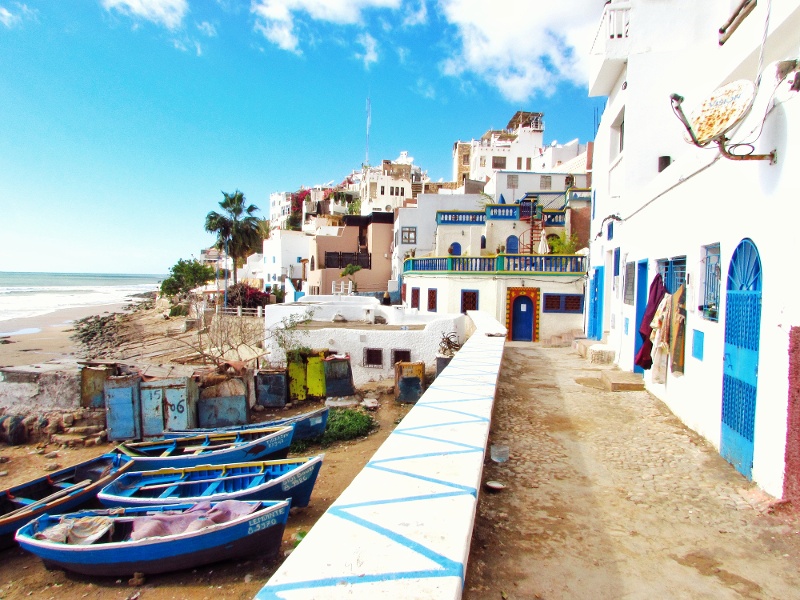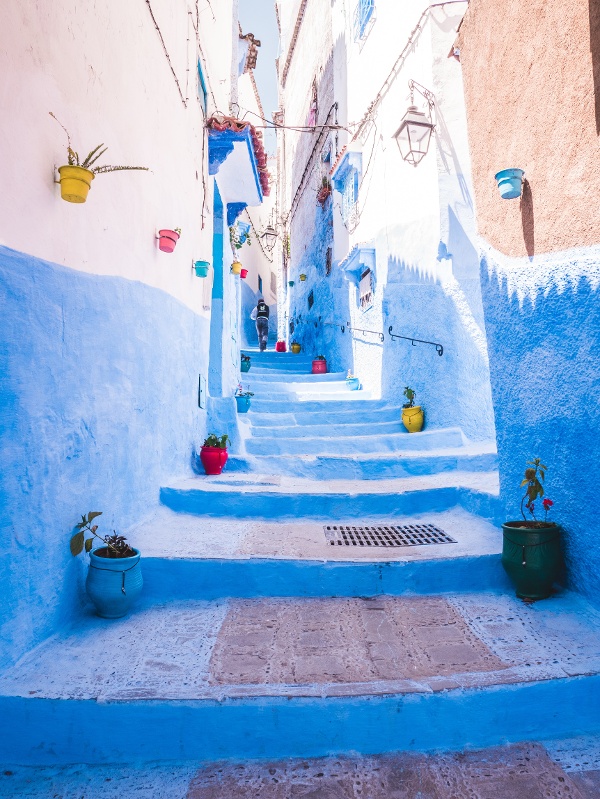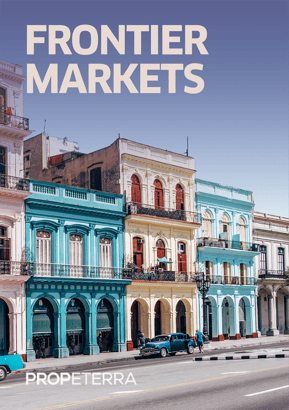Few places are as evocative as Morocco. The tanneries of Fez, kasbahs of the mid Atlas or whitewashed splendour of Essaouira. With its close proximity to Europe, it has attracted the mysterious and itinerant, from the hedonists of Tangier to the tourists gracing the Marrakech souk. There is an otherworldly quality to Morocco, and its exoticism is its trademark. But it is also characterised by a high level of development compared with many of its peers on the African continent and is widely understood by emerging market investors. This means structural challenges are increasingly viewed as opportunities, not least by impact investors focused on housing.
The Moroccan economy has a number of favourable attributes supportive of investment. Analyses by the World Bank and Organisation for Economic Cooperation and Development (OECD), suggest it has greater resilience than many other African countries, by virtue of a comparatively diversified economic base (OECD (2020), World Bank (2020)). Though a 60th place ranking in the Ease of Doing Business Index offers scope for improvement, it is still superior to many of its peers. (OECD (2020), World Bank (2020)). Similarly, since 2018, it has a preferential exchange rate regime. The Bank Al-Maghrib has continued its policy of pegging to both the Euro and the US dollar, but has permitted greater flexibility to respond to market conditions (Centre for Affordable Housing Finance in Africa (2020)). Currency is often one of the foremost concerns of funds engaged in developing economies, and so this marks a welcome innovation.

Positive economic structures, however, co-exist with tepid recent growth. Morocco has struggled to make up lost ground since the global financial crisis of 2008, which, together with the Arab Spring and regional terrorism, has dampened prospects. Data suggests there was growth of around 3% per annum in 2018 and 2019, with a marginal decrease year-on-year (World Bank (2020)). With enforced shutdowns- and the effective cessation of tourism- due to coronavirus, Morocco is braced for an economic shock in 2020. The degree to which this continues into 2021 depends on domestic efforts to stop the spread of the virus, and international progress toward vaccination. There had been a fall in national unemployment from 10.5% to 10% between 2018 and 2019, however, it looks certain there will be a rise in joblessness when new statistics are released (Centre for Affordable Housing Finance in Africa (2020)).
Good quality housing makes a valuable contribution to the economic well being of a nation. This is because it affords individuals and families a stable framework from which to work and recreate. In the last reporting year, 40,724 building permits were issued, representing a total of nearly 110,000 units (Centre for Affordable Housing Finance in Africa (2020)). These figures from the Office of the High Commissioner for Planning, do not reveal total units delivered, but even if they represented completions rather than permits, there would still be a significant shortfall. Analysis from the Centre for Affordable Housing Finance in Africa (CAHFA), suggests there is a requirement for 1.57m units, with around 1.36m in urban areas (Centre for Affordable Housing Finance in Africa (2020)). One of the principal reasons for increased demand owes to the reduction in household size to around 2.3 today, down from 3.1 in the 1960s (Centre for Affordable Housing Finance in Africa (2020)). With different family unit configurations reflecting modern living patterns, this is contributing to the overall deficit.
Insufficient delivery of housing owes also to the lack of affordability for many Moroccans. Minimum wages were last set in 2015 and were c. US$312 per month in the public sector, falling to US$268 in the private sector (Centre for Affordable Housing Finance in Africa (2020)). There was a separate designation for agricultural workers with pay set no lower than US$7 per day (Centre for Affordable Housing Finance in Africa (2020)). Taking the country as a whole, the price of the cheapest newly built house was c. US$71,000, highlighting the difficulties experienced by many individuals in purchasing their own home (Centre for Affordable Housing Finance in Africa (2020)). The CAHFA point to the reality that building costs simply disincentivize developer activity in this segment, because margins are insufficient, particularly on a risk adjusted basis. Though there remains a preference for home ownership, a growing number of households are residing in the rental sector since wages in the formal economy align more closely with rates (Centre for Affordable Housing Finance in Africa (2020)).

Morocco demands close inquiry. From a macroeconomic perspective there is reason for enthusiasm, but at micro level intervention is needed. The country benefits from a young and dynamic population with its commercial sector set to experience growth, notwithstanding Covid. Perhaps most importantly, it is familiar and sits as a link between the expanding economies of Sub Saharan Africa and the increasingly stagnate economies of Europe. But with the effective doubling of the African continent anticipated in the next thirty years, Morocco needs to act to maintain economic diversity and ensure judicious distribution of population and wealth. Happily the government seems to have understood this, and the Finance Act of 2019 incentivised development in rural areas. Domestic migration, if unchecked, will likely worsen the housing situation and be difficult to redress after it has occurred. From Rabat to Meknes, Oualidia to Casablanca, there is latent demand for housing which should be viewed not simply as a social imperative, but an economic one too.






